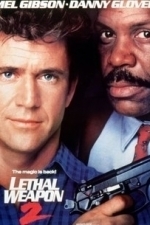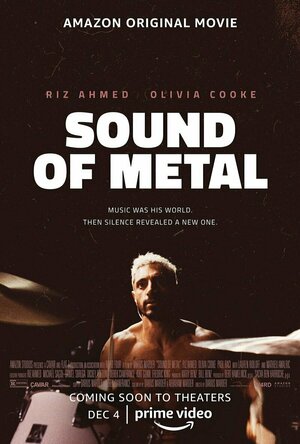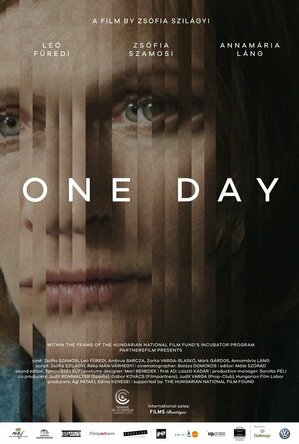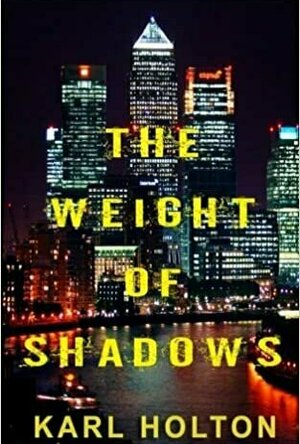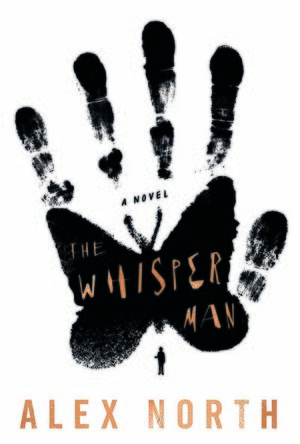Search
Search results
Gareth von Kallenbach (980 KP) rated Mission Impossible Ghost Protocol (2011) in Movies
Aug 7, 2019
The fourth chapter in the phenomenally popular Mission Impossible series has arrived in theaters and jump starts the franchise with a dynamic ensemble cast and a bold mix of action and adventure with a touch of comedy thrown in.
Mission Impossible: Ghost Protocol opens with a daring escape from a Russian prison followed shortly thereafter by an infiltration of the Kremlin and subsequent explosion on the famed Russian landmark.
Tom Cruise returns as agent Ethan Hunt and is joined by Jeremy Renner, Simon Pegg, and Paula Patton. Shortly after the explosion at the Kremlin, tensions between the United States and Russia are at an all-time high. As a result, the president initiates Ghost Protocol, which effectively shuts down the Impossible Mission Force and eliminates many of their resources. As a result, Ethan and his team must take on an unsanctioned mission that will take them from Russia to Dubai to Mumbai in a race against time to not only clear the IMF from being blamed for the bombing, but to stop a deranged criminal from using stolen Russian launch codes to unleash a nuclear strike upon America.
Ethan and his team bring all manner of weapons and technology to bear against the enemy and while the action sequences are intense and the best in the series to date, they don’t overshadow the human element of the film as each character has a back story which helped endear them to the audience. Unlike previous films in the series, the plot is not as convoluted and hard to follow and director Brad Bird, making his live-action directing debut, does a fantastic job of pacing the film, never once letting it drag or become boring.
Pegg and Renner are fantastic additions to the series as Renner brings a sense of humanity to his role as analyst Brandt. Pegg gets a share of comedic lines and moments but is not there simply to provide comic relief, convincingly deadly serious when the action becomes hot and heavy. Patton holds her own with the guys and proves she is more than just a pretty face as her fight scene in a high-rise with an assassin is as intense as any action fan could want with a fantastic finale.
Cruise goes all-out in his performance and performs many of the film’s stunts himself, quite a few of them shriek-inducing, judging by the reaction of the ladies in the audience. While Ethan spends a lot of time running in the film, he also spends a lot of time fighting and it was very nice to see him share some of the responsibility for the film’s action scenes with his ensemble cast. I believe that the ensemble works so well that the studio should keep this team together for future installments in the series. The team has a winning formula that reinvigorates the series giving us what I believe is the best film in the series to date.
Mission Impossible: Ghost Protocol opens with a daring escape from a Russian prison followed shortly thereafter by an infiltration of the Kremlin and subsequent explosion on the famed Russian landmark.
Tom Cruise returns as agent Ethan Hunt and is joined by Jeremy Renner, Simon Pegg, and Paula Patton. Shortly after the explosion at the Kremlin, tensions between the United States and Russia are at an all-time high. As a result, the president initiates Ghost Protocol, which effectively shuts down the Impossible Mission Force and eliminates many of their resources. As a result, Ethan and his team must take on an unsanctioned mission that will take them from Russia to Dubai to Mumbai in a race against time to not only clear the IMF from being blamed for the bombing, but to stop a deranged criminal from using stolen Russian launch codes to unleash a nuclear strike upon America.
Ethan and his team bring all manner of weapons and technology to bear against the enemy and while the action sequences are intense and the best in the series to date, they don’t overshadow the human element of the film as each character has a back story which helped endear them to the audience. Unlike previous films in the series, the plot is not as convoluted and hard to follow and director Brad Bird, making his live-action directing debut, does a fantastic job of pacing the film, never once letting it drag or become boring.
Pegg and Renner are fantastic additions to the series as Renner brings a sense of humanity to his role as analyst Brandt. Pegg gets a share of comedic lines and moments but is not there simply to provide comic relief, convincingly deadly serious when the action becomes hot and heavy. Patton holds her own with the guys and proves she is more than just a pretty face as her fight scene in a high-rise with an assassin is as intense as any action fan could want with a fantastic finale.
Cruise goes all-out in his performance and performs many of the film’s stunts himself, quite a few of them shriek-inducing, judging by the reaction of the ladies in the audience. While Ethan spends a lot of time running in the film, he also spends a lot of time fighting and it was very nice to see him share some of the responsibility for the film’s action scenes with his ensemble cast. I believe that the ensemble works so well that the studio should keep this team together for future installments in the series. The team has a winning formula that reinvigorates the series giving us what I believe is the best film in the series to date.
Matthew Krueger (10051 KP) rated Lethal Weapon 2 (1989) in Movies
Jul 9, 2020
Protect Joe Pesci
Lethal Weapon 2- adds more action, drama, suspense, thrills, comedy, lots of comedy and more chemistry.
The production:
Shane Black and Warren Murphy's original Play Dirty script:
Their original title for the script was Play Dirty. Although many people thought that their script was brilliant, it was rejected by Silver, studio and director Richard Donner for being too dark and bloody, and because in the ending of the script Riggs dies, while they wanted to keep him alive in case of further sequels. They also wanted the second film to focus more on comedy, while Black's draft focused more on courage and heroics, like Riggs willing to die to protect Murtaugh and his family, due to his love for them
When his script was rejected, Black felt that he had failed the producers. He initially offered to give his payment back, but his agent talked him out of it. Black also refused to re-write the script and quit from the project after working for six months on it. Black later said how the problem with the second film was that they did too much comedy, and how he dislikes the third and fourth films because of the way Riggs' character was changed.
Director Richard Donner said in the film's Blu-ray commentary that the film was shot in such a way that it could be edited with two different endings, one in which Riggs dies and one in which he lives. Audiences in test screenings responded well to Riggs' survival, and this was kept, though the last shot in the film with the camera moving away from Murtaugh holding Riggs was shot for the ending in which he dies.
Jeffrey Boam's final script:
Originally, the character of Rika was intended to survive, with the last scene in the film being Riggs and Rika eating Thanksgiving dinner with the Murtaughs, but the director decided to kill the character to increase Riggs' motivation to destroy the South African drug smugglers. The film was the debut of Leo Getz (Joe Pesci), a crooked but whistle-blowing CPA who is placed in protective custody by Riggs and Murtaugh, and makes the detectives' more difficult due to his neurotic behavior. The Getz character remained a regular throughout the remainder of the film series.
The plot: South African smugglers find themselves being hounded and harassed by Riggs and Murtaugh, two mismatched Los Angeles police officers. However, the South Africans are protected by diplomatic immunity, and so the two are assigned to witness-protection duty in an attempt by their captain to keep his job. It is only when this witness reveals to them that he has already dealt with the smugglers that the trouble really starts.
I love the chemistry between Mel and Danny and now adding Joe Pesci to the mix its perfect. The perfrct trio.
Lethal Weapon 2- is a good sequel to the first one, and adds more. Highly recordmend watching it.
The production:
Shane Black and Warren Murphy's original Play Dirty script:
Their original title for the script was Play Dirty. Although many people thought that their script was brilliant, it was rejected by Silver, studio and director Richard Donner for being too dark and bloody, and because in the ending of the script Riggs dies, while they wanted to keep him alive in case of further sequels. They also wanted the second film to focus more on comedy, while Black's draft focused more on courage and heroics, like Riggs willing to die to protect Murtaugh and his family, due to his love for them
When his script was rejected, Black felt that he had failed the producers. He initially offered to give his payment back, but his agent talked him out of it. Black also refused to re-write the script and quit from the project after working for six months on it. Black later said how the problem with the second film was that they did too much comedy, and how he dislikes the third and fourth films because of the way Riggs' character was changed.
Director Richard Donner said in the film's Blu-ray commentary that the film was shot in such a way that it could be edited with two different endings, one in which Riggs dies and one in which he lives. Audiences in test screenings responded well to Riggs' survival, and this was kept, though the last shot in the film with the camera moving away from Murtaugh holding Riggs was shot for the ending in which he dies.
Jeffrey Boam's final script:
Originally, the character of Rika was intended to survive, with the last scene in the film being Riggs and Rika eating Thanksgiving dinner with the Murtaughs, but the director decided to kill the character to increase Riggs' motivation to destroy the South African drug smugglers. The film was the debut of Leo Getz (Joe Pesci), a crooked but whistle-blowing CPA who is placed in protective custody by Riggs and Murtaugh, and makes the detectives' more difficult due to his neurotic behavior. The Getz character remained a regular throughout the remainder of the film series.
The plot: South African smugglers find themselves being hounded and harassed by Riggs and Murtaugh, two mismatched Los Angeles police officers. However, the South Africans are protected by diplomatic immunity, and so the two are assigned to witness-protection duty in an attempt by their captain to keep his job. It is only when this witness reveals to them that he has already dealt with the smugglers that the trouble really starts.
I love the chemistry between Mel and Danny and now adding Joe Pesci to the mix its perfect. The perfrct trio.
Lethal Weapon 2- is a good sequel to the first one, and adds more. Highly recordmend watching it.
Bob Mann (459 KP) rated Sound of Metal (2019) in Movies
Apr 13, 2021
Acting by Riz Ahmed, Paul Raci AND Olivia Cooke (2 more)
Wonderful story: show not tell!
Sound design is simply epic
When I was young, I remember being scared to death by an old black and white movie about a woman who went blind.... I remember she was travelling on a bus and the movie simulated the view through her eyes as her vision dimmed and then went black. (I've googled this without joy, so can't place the movie!) I found the concept of suddenly losing one of your key senses to be utterly terrifying. So, I was fully engaged with Ruben's issues in this movie.
I thought the movie was going to be downbeat and depressing. But, both with it's positive portrayal of the deaf community and with the extraordinary ending, I found it to be a wonderfully heart-warming tale.
Positives:
- There is just SOOO much depth to this story: a character torn from his familiar world and struggling to adapt to the changes. It's fundamentally a movie about acceptance of self. The last two minutes of the screen time are momentous: one of the best endings of a movie I can remember in recent memory. A truly religious experience.
- "Sound of Metal" won the BAFTA at the weekend for Sound, and deservedly so. It's another leading character in the film, with the editing deftly weaving between the soundscape that most of us live in and Ruben's perception. Apparently, the sound team used a hyper-sensitive microphone in Ahmed's mouth to pick up the inner noises of his body.
- Both Riz Ahmed and Paul Raci are nominated for Oscars. Simply stunning performances from both of them.
- Although not nominated, I'd lob Olivia Cooke's name into that frame too. It's almost IMPOSSIBLE to see the same actress who played "Pixie" in the body of Lou. It's a transformation akin to Charlize Theron's in "Monster". (In fact, it took me until the Paris scenes to actually recognize her!)
- Director Darius Marder - IN HIS DIRECTORIAL FEATURE DEBUT! - delivers a fabulous example of "show not tell". All of the detail is present in the film to tell the story if you look for it. You don't need dialogue to give Lou's backstory: just a casual shot of her lower arm is enough.
Negatives:
- It's a VERY minor quibble but, with a 2 hour running length, the Paris scenes dragged just a little for me. I might have chosen to do a few nips and tucks there in the 'party' scenes. But I wouldn't have wanted to lose much.
"Sound of Metal" has - I'm sure - a guaranteed slot in my Films of the Year list. Simply stunning and highly recommended, this is currently showing in the UK on Amazon Prime.
(For the full graphical review, please check out the One Mann's Movies review here - https://bob-the-movie-man.com/2021/04/13/sound-of-metal-dont-ignore-that-ear-bud-volume-warning-on-your-phone-kids/ )
I thought the movie was going to be downbeat and depressing. But, both with it's positive portrayal of the deaf community and with the extraordinary ending, I found it to be a wonderfully heart-warming tale.
Positives:
- There is just SOOO much depth to this story: a character torn from his familiar world and struggling to adapt to the changes. It's fundamentally a movie about acceptance of self. The last two minutes of the screen time are momentous: one of the best endings of a movie I can remember in recent memory. A truly religious experience.
- "Sound of Metal" won the BAFTA at the weekend for Sound, and deservedly so. It's another leading character in the film, with the editing deftly weaving between the soundscape that most of us live in and Ruben's perception. Apparently, the sound team used a hyper-sensitive microphone in Ahmed's mouth to pick up the inner noises of his body.
- Both Riz Ahmed and Paul Raci are nominated for Oscars. Simply stunning performances from both of them.
- Although not nominated, I'd lob Olivia Cooke's name into that frame too. It's almost IMPOSSIBLE to see the same actress who played "Pixie" in the body of Lou. It's a transformation akin to Charlize Theron's in "Monster". (In fact, it took me until the Paris scenes to actually recognize her!)
- Director Darius Marder - IN HIS DIRECTORIAL FEATURE DEBUT! - delivers a fabulous example of "show not tell". All of the detail is present in the film to tell the story if you look for it. You don't need dialogue to give Lou's backstory: just a casual shot of her lower arm is enough.
Negatives:
- It's a VERY minor quibble but, with a 2 hour running length, the Paris scenes dragged just a little for me. I might have chosen to do a few nips and tucks there in the 'party' scenes. But I wouldn't have wanted to lose much.
"Sound of Metal" has - I'm sure - a guaranteed slot in my Films of the Year list. Simply stunning and highly recommended, this is currently showing in the UK on Amazon Prime.
(For the full graphical review, please check out the One Mann's Movies review here - https://bob-the-movie-man.com/2021/04/13/sound-of-metal-dont-ignore-that-ear-bud-volume-warning-on-your-phone-kids/ )
Peter Strickland recommended One Day (2018) in Movies (curated)
BookInspector (124 KP) rated The Weight of Shadows (Shadow Series #1) in Books
Sep 24, 2020
The description above, does not do the justice to this book, there is so much more to it than it is given away in the blurb.
One thing for sure about this book, it is not boring. The book begins by introducing characters, and you should pay attention, because there is a vast amount of them. In the beginning, I was confused of who belonged were, but as I continued reading this book, it all made sense. These 300 pages are filled with action, robberies, murders, kidnapping, police investigations and of course, Ukrainian Mafia. And believe it or not, everything is entangled so masterfully that it makes one huge, great crime mystery.
The characters chosen for this book are very diverse, intriguing and complex. The book covers period of six days and it is unbelievable what can happen in that period of time. I, personally, could not choose my favourite character in this book, because there were too many great personalities. This novel was told from multiple perspectives, and it allowed to get to know the characters better, and made the book more interesting for the reader. I do like books, which are set in London, and I really enjoyed the detailed knowledge of this city, which Holton shared in the book. It just somehow warms my heart and makes it more realistic.
I really enjoyed how fast paced this book’s narrative was. Every chapter gives a different character’s story, so it was a real page turner for me, as I wanted to find out, what happened to other characters. There were a lot of twists and turns in this novel, however, some of the parts were quite obvious, and it annoyed me that those great detectives couldn’t figure out some of the things quicker. This novel is a debut for Holton, but in the prologue chapter, there is an incredibly interesting character mentioned, where it feels like this is a second book in the series, and I honestly hope that one day there will be a book about the “skin artist” and that investigation.
The writing style was pleasurable to read with easy and understandable language . I loved the short chapters of this book, and it was fast paced and indulging read. I should mention, that there are murders, blood and violence in this book, so it is not suitable for people with weak nerves. The ending of this book has very unexpected twist and a cliff hanger, which is driving me mad, but otherwise it gives a satisfactory ending for this part of the series. So, to conclude, I would strongly recommend this book, because it has riveting, complex variety of characters, and the plot is masterfully twisted making it an indulging, fast paced book, which deserves to be read. Can’t wait for the next book in the series.
Was given this book by author for honest review.
One thing for sure about this book, it is not boring. The book begins by introducing characters, and you should pay attention, because there is a vast amount of them. In the beginning, I was confused of who belonged were, but as I continued reading this book, it all made sense. These 300 pages are filled with action, robberies, murders, kidnapping, police investigations and of course, Ukrainian Mafia. And believe it or not, everything is entangled so masterfully that it makes one huge, great crime mystery.
The characters chosen for this book are very diverse, intriguing and complex. The book covers period of six days and it is unbelievable what can happen in that period of time. I, personally, could not choose my favourite character in this book, because there were too many great personalities. This novel was told from multiple perspectives, and it allowed to get to know the characters better, and made the book more interesting for the reader. I do like books, which are set in London, and I really enjoyed the detailed knowledge of this city, which Holton shared in the book. It just somehow warms my heart and makes it more realistic.
I really enjoyed how fast paced this book’s narrative was. Every chapter gives a different character’s story, so it was a real page turner for me, as I wanted to find out, what happened to other characters. There were a lot of twists and turns in this novel, however, some of the parts were quite obvious, and it annoyed me that those great detectives couldn’t figure out some of the things quicker. This novel is a debut for Holton, but in the prologue chapter, there is an incredibly interesting character mentioned, where it feels like this is a second book in the series, and I honestly hope that one day there will be a book about the “skin artist” and that investigation.
The writing style was pleasurable to read with easy and understandable language . I loved the short chapters of this book, and it was fast paced and indulging read. I should mention, that there are murders, blood and violence in this book, so it is not suitable for people with weak nerves. The ending of this book has very unexpected twist and a cliff hanger, which is driving me mad, but otherwise it gives a satisfactory ending for this part of the series. So, to conclude, I would strongly recommend this book, because it has riveting, complex variety of characters, and the plot is masterfully twisted making it an indulging, fast paced book, which deserves to be read. Can’t wait for the next book in the series.
Was given this book by author for honest review.
BookInspector (124 KP) rated The Whisper Man in Books
Sep 24, 2020
This novel was told from multiple perspectives, but the main characters in this book were Jake and his dad Tom. They move to a new town after Tom’s wife dies. The town is quite ordinary, except for the fact that they moved to a house locally called “the scary house”, and that a child disappeared and was found murdered, and then Jake starts to hear the whispers just outside his window… 😮
I really enjoyed this book and the story. The characters chosen for this novel are quite ordinary, but at the same time incredibly mysterious. I really enjoy reading multiple perspectives, and especially when the murderer’s thoughts are incorporated as well, and this book didn’t disappoint me with that. I really liked how the author delivered the characters, he concentrated on the important ones, and I was able to find out more about them. My favourite character has to be Jake, he is smart, sweet, interesting, and he truly shines in this book. I really enjoyed the variety of characters as well.
The narrative of this novel is very creatively crafted, it has plenty of twists and surprises, and I really liked the way Alex North was building up the suspense throughout this novel. This book had not only chills and thrills, but also some very deep and insightful monologues as well. The characters discussed such topics as loss and how they are dealing with it, how fathers influence their sons, alcoholism and it’s consequences, single parent struggles, and many more. Even though there are female characters in this novel, the author concentrates more on Father-Son bond and relationships, and it feels quite masculine at times, and I really liked reading about it.
I enjoyed the writing style of this book, the book was very well composed and delivered. The chapters are short, so it was very hard to put it down. There are some very disturbing scenes in this book related to dead seven-year-old children, so it is not for faint-hearted readers. Even though this story is very gripping, I was expecting something more from the culmination, it was good, but it could’ve been even better. I liked how this book ended, I think it rounded the story very nicely. There is not much information about the author himself, but I believe it was his debut novel, and I truly hope that there will be more coming in the near future. 🙂
So, to conclude, it was a true page turner for me, that left me scared at night. I loved the complex characters, unexpected discoveries, and always lingering fear and creepiness. I thoroughly enjoyed this book, and I strongly recommend it to all mystery and thriller fans. There are rumours that there will be a film, and I absolutely can’t wait to see, how it will be adapted to the big screen.
I really enjoyed this book and the story. The characters chosen for this novel are quite ordinary, but at the same time incredibly mysterious. I really enjoy reading multiple perspectives, and especially when the murderer’s thoughts are incorporated as well, and this book didn’t disappoint me with that. I really liked how the author delivered the characters, he concentrated on the important ones, and I was able to find out more about them. My favourite character has to be Jake, he is smart, sweet, interesting, and he truly shines in this book. I really enjoyed the variety of characters as well.
The narrative of this novel is very creatively crafted, it has plenty of twists and surprises, and I really liked the way Alex North was building up the suspense throughout this novel. This book had not only chills and thrills, but also some very deep and insightful monologues as well. The characters discussed such topics as loss and how they are dealing with it, how fathers influence their sons, alcoholism and it’s consequences, single parent struggles, and many more. Even though there are female characters in this novel, the author concentrates more on Father-Son bond and relationships, and it feels quite masculine at times, and I really liked reading about it.
I enjoyed the writing style of this book, the book was very well composed and delivered. The chapters are short, so it was very hard to put it down. There are some very disturbing scenes in this book related to dead seven-year-old children, so it is not for faint-hearted readers. Even though this story is very gripping, I was expecting something more from the culmination, it was good, but it could’ve been even better. I liked how this book ended, I think it rounded the story very nicely. There is not much information about the author himself, but I believe it was his debut novel, and I truly hope that there will be more coming in the near future. 🙂
So, to conclude, it was a true page turner for me, that left me scared at night. I loved the complex characters, unexpected discoveries, and always lingering fear and creepiness. I thoroughly enjoyed this book, and I strongly recommend it to all mystery and thriller fans. There are rumours that there will be a film, and I absolutely can’t wait to see, how it will be adapted to the big screen.

RAVENMARK: Scourge of Estellion
Games
App
50% OFF FOR WWDC! Experience the award-winning wargame, Ravenmark: Scourge of Estellion, where epic...
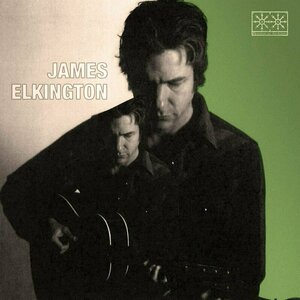
Wintres Woma by James Elkington
Album
RIYL Steve Gunn, Michael Chapman, Kevin Ayers, Bert Jansch, Ryley Walker, Jim O'Rourke, Scott...

The Inner World
Games
App
The Inner World – A hilarious and critically acclaimed 2D-Point’n’Click Adventure. Robert...

Never Alone: Ki Edition
Games and Education
App
A worldwide App Store Editors’ Choice. “Stunningly poignant - and quite brilliant. 10/10.” -...

